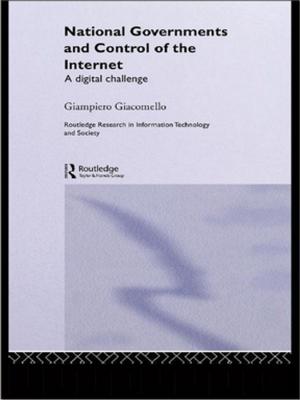| Author: | Shiping Tang | ISBN: | 9781351578042 |
| Publisher: | Taylor and Francis | Publication: | July 5, 2017 |
| Imprint: | Routledge | Language: | English |
| Author: | Shiping Tang |
| ISBN: | 9781351578042 |
| Publisher: | Taylor and Francis |
| Publication: | July 5, 2017 |
| Imprint: | Routledge |
| Language: | English |
Institutional change is a central driving force behind social changes, and thus a central topic in all major fields of social sciences. Yet, no general theory of institutional change exists.
Drawing from a diverse literature, this book develops a general theory of institutional change, based on a social evolutionary synthesis of the conflict approach and the harmony approach. The book argues that because the whole process of institutional change can be understood as a process of selecting a few ideas and turning them into institutions, competition of ideas and struggle for power to make rules are often at the heart of institutional change. The general theory not only integrates more specific theories and insights on institutional change that have been scattered in different fields into a coherent general theory but also provides fundamental new insights and points to new directions for future research.
This book makes a fundamental contribution to all major fields of social sciences: sociology (sociological theory), political sciences, institutional economics, and political theory. It should be of general interest to scholars and students in all major fields of social science.
Institutional change is a central driving force behind social changes, and thus a central topic in all major fields of social sciences. Yet, no general theory of institutional change exists.
Drawing from a diverse literature, this book develops a general theory of institutional change, based on a social evolutionary synthesis of the conflict approach and the harmony approach. The book argues that because the whole process of institutional change can be understood as a process of selecting a few ideas and turning them into institutions, competition of ideas and struggle for power to make rules are often at the heart of institutional change. The general theory not only integrates more specific theories and insights on institutional change that have been scattered in different fields into a coherent general theory but also provides fundamental new insights and points to new directions for future research.
This book makes a fundamental contribution to all major fields of social sciences: sociology (sociological theory), political sciences, institutional economics, and political theory. It should be of general interest to scholars and students in all major fields of social science.















